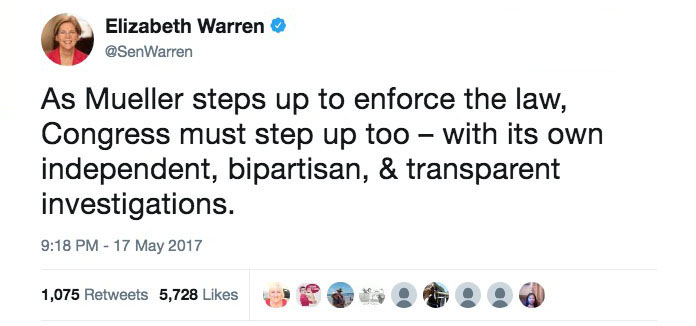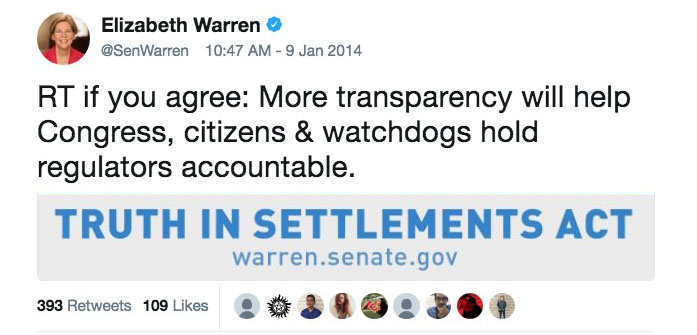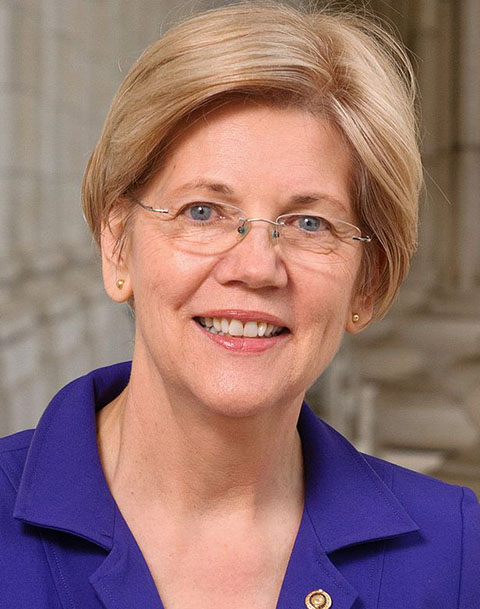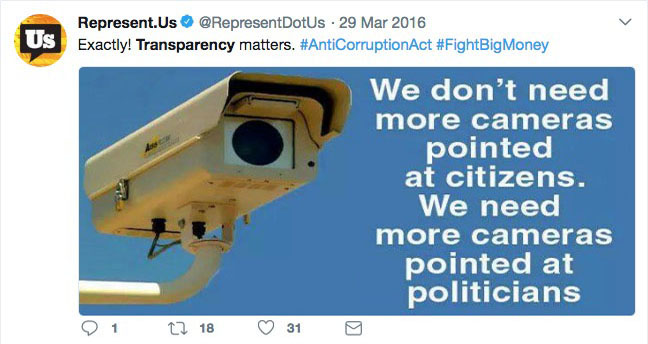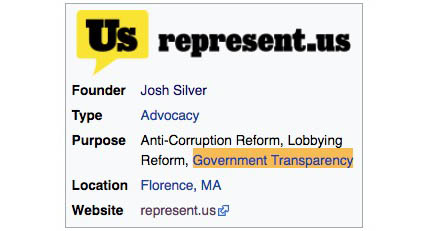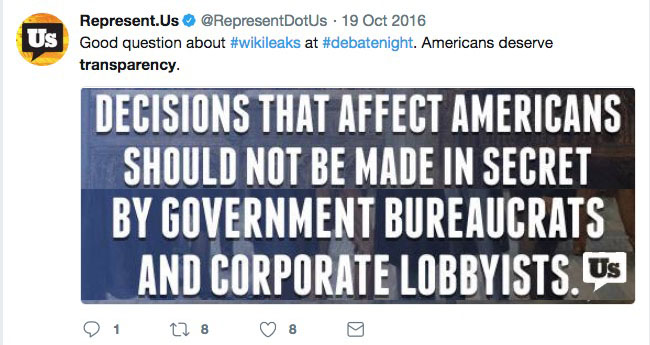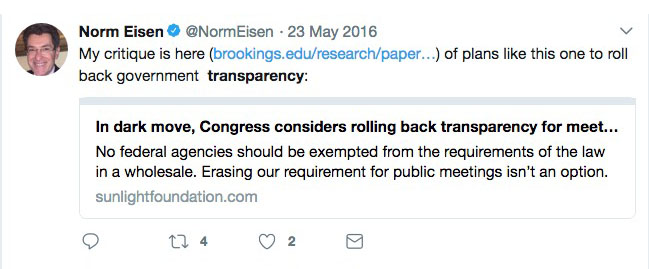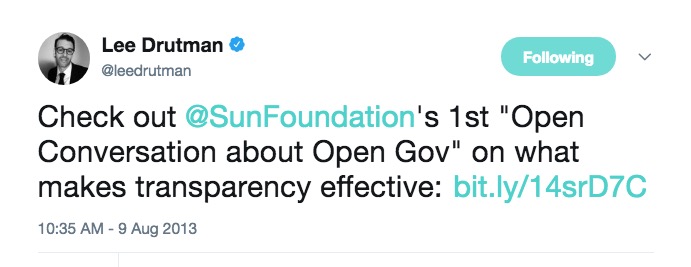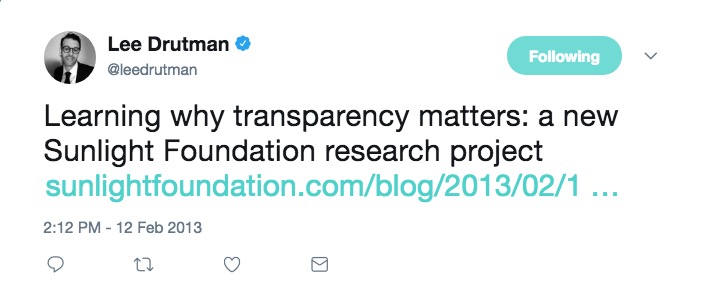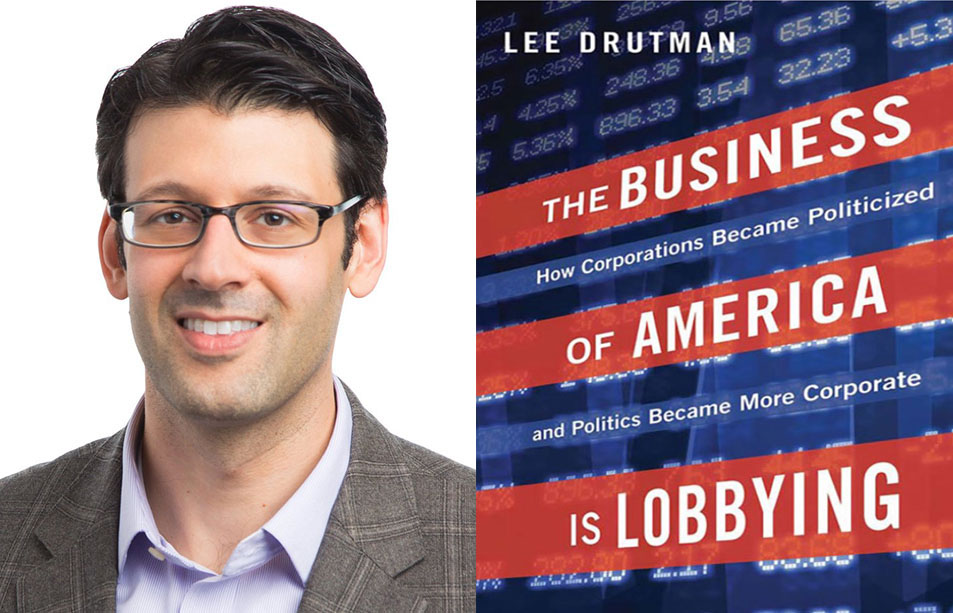Full Page Ad in the Washington Post - January 31, 2018
By Nsubuga, Ranalli & D’Angelo – November 8, 2017
The more open a system becomes, the more easily it can be penetrated by money, lobbyists and fanatics...Congress can now be monitored and influenced as never before. As a result, lobbies, which do most of the monitoring and influencing, have gained power.Fareed Zakaria 2003 – Future of Freedom
Washington Post Ad
On January 31st, CRI placed a display addisplay ad in the Washington Post. The claims in the ad are based on our four-year study which finds that congressional transparency overwhelmingly benefits the powerful and drives increasing inequality, partisanship, incarceration etc. This is a topic we have found broad support for in the literature.
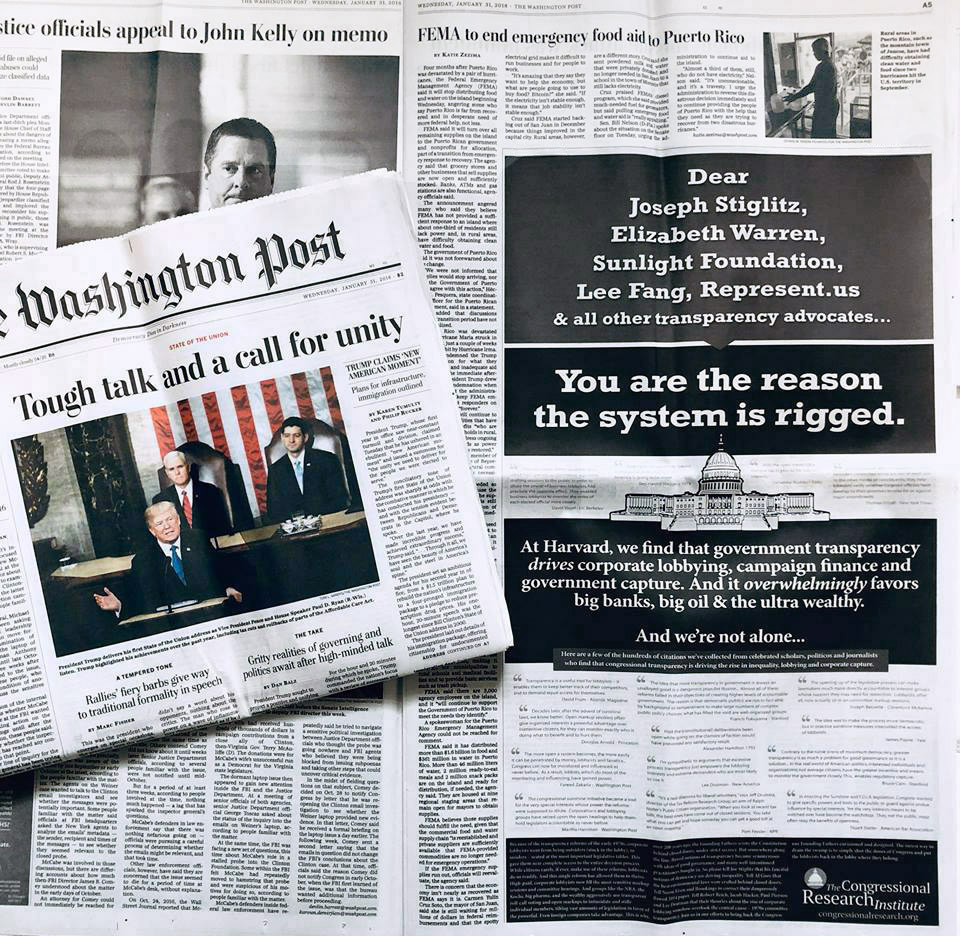
CRI Washington Post Ad 2018

CRI Washington Post Ad 2018
As such, our ad is targeted and addressed to a number of, likely, well-intentioned individuals and groups, who continue to advocate for harmful forms of government transparency. Clicking on their names below reveals a number of their enthusiastically pro-transparency statements. We have debunk Norm Eisen’s work here, and maintain a page on Lee Drutman here.
Joseph Stiglitz
Elizbeth Warren
Sunlight Foundation
Represent.Us
Norm Eisen
Lee Drutman
Openness is an essential part of governance.Stiglitz 1999 – The Role of Transparency
Note: Stiglitz makes big claims without supporting evidence. Worse, he apparently ignores the dozens of scholars who claim that transparency benefits the wealthy.
This secrecy is corrosive: it is antithetical to democratic values, and it undermines democratic processes. It is based on a mistrust between those governing and those governed; and at the same time, it exacerbates that mistrust.Stiglitz 1999 – The Role of Transparency
Note: More big claims without supporting evidence.
In a modern democratic society, governance is a central concern. How are those responsible for making critical decisions chosen? How are the decisions made? Is there sufficient transparency that there can be meaningful public scrutiny?Stiglitz 2012 – The Price of Inequality
While the IMF complained about problems of governance...It lacked some of the basic rules of democratic institutions; namely, transparency, so that citizens could see...how officials had voted, so that they could be held accountable.Stiglitz 2006 – Making Globalization Work
Note: This notion that officials should vote transparently is perhaps the most dangerous of Stiglitz’s unsupported assertions.
Transparency has long been recognized as one of the strongest anti-dotes to corruption... Citizens’ right-to-know laws (like America’s and Britain's Freedom of Information Acts) are necessary to promoting both meaningful democracy and accountability.Stiglitz 2006 – Making Globalization Work
Note: “Recognized” by who? Based on what evidence?
I believe in transparency and democracy, and I think the US. Trade Representative (USTR) should too.Elizabeth Warren 2013 – Letter to Michael Froman
If members of the public do not have reasonable access to the terms of the agreements under neogtiation, then they are unable to offer real input into the process. Without transparency, the benefit from robust democratic participation – an open marketplace of ideas – is seriously reduced.Elizabeth Warren 2013 – Letter to Michael Froman
We had spoken often of our commitment to transparency, and we were doing our best to be an open book with the public and with Congress.Elizabeth Warren 2014 – A Fighting Chance
We intended to build this agency out in the open. No cozy deals behind closed doors. This would be the peope’s agenecy, and we took transparency seriously.Elizabeth Warren 2014 – A Fighting Chance
If transparency would lead to widespread public opposition to a trade agreement, then that trade agreement should not be the policy of the United States.Elizabeth Warren 2013 – Letter to Michael Froman
If this [congressional] committee isn’t transparent, it’ll be a failure of public policy, and a black eye on Congress.Wonderlich 2011 – Super Congress? Better be Transparent
The road to rebuilding public trust in Congress is paved with transparency and accountability to constituents, not secrecy. Every U.S. Senator should insist upon regular order, not sacrifice openness on the altar of naked legislative power.Wonderlich 2017 – Unprecedented Secrecy
John Wonderlich is... one of the nation’s foremost advocates for open government. John leads Sunlight’s effort to change government at every level, by opening up key data sources and information to make government more accountable to citizens.Sunlight Foundation Website 2017 –
Will the meetings of the committee be webcast? The Rules don’t require it, but there’s no justification for not webcasting the entirety of every meeting of the committee’s work, and archiving the videos for easy review.Wonderlich 2011 – Super Congress? Better be Transparent
Our overarching goal is to achieve changes in the law to require real-time, online transparency for all government information. And, while our work began in 2006 with only a focus on the U.S. Congress, our open government work now takes place at the local, state, federal and international levels.Sunlight Foundation Website 2017 –
This year, Represent.Us members worked with local, bipartisan coalitions on ballot initiatives in South Dakota, Washington State, and San Francisco. In the first two, they filed initiatives to crack down on conflicts of interest, increase transparency and enforcement, and empower voters with citizen-funded elections.Josh Silver 2016 – Democracy Hero
Every municipal and state Anti-Corruption Act creates common-sense ethics, conflict-of-interest, transparency, and campaign finance laws. State Acts create the opportunity for federal candidates from that state to campaign on the anti-corruption platform – accountable to their constituents, not special interests.Josh Silver 2016 – Represent.Us website
Our organizers will reach out and ask you to join a conference call, where we’ll give you the tools necessary to get to work. It all starts by passing state and local laws and resolutions that end political corruption, create transparency, and fix our broken voting system.Josh Silver 2016 – Reddit AMA
The data do not actually suggest that we have too much transparency.Norm Eisen 2017 – Talk at Harvard Kennedy School
Note: The “data” that Eisen refers to here is the flawed data produced in his flawed paper where he misrepresents the beginning date of congressional transparency by 15-60 years, and ignores the most important congressional transparency reforms (early 1970s).
The Senate installed cameras in 1986, ushering in its era of transparency. Comparing its productivity (as measured by enactment of laws) before and after the cameras were installed shows little change.Norm Eisen 2014 – Critics of Transparency are Wrong
Note: Eisen misrepresents the beginning date of congressional transparency by 15-60 years. And he measures the quality of legislation by the number of laws, which is peculiar.
The potential for bad corruption – whether through earmarks, campaign contributions, patronage, or other forms of “grease” – is precisely why sunlight is needed and, indeed, should be expanded. Norm Eisen 2014 – Critics of Transparency are Wrong
Note: Eisen is stating his guesswork as if they were facts. More importantly he ignores how a vast majority of corruption is achieved through public threats.
A number of academics have recently made the attention-grabbing assertion that excessive openness and transparency are one of the causes of our country’s governance woes. There is no reason to abandon transparency or the hard-won advantages it has gained us: empowering citizens to hold government accountable.Norm Eisen 2014 – Critics of Transparency are Wrong
Second, the process is not adequately transparent. The public, the media and even competing advocates are hard-pressed to know which lobbyists are meeting with whom and what they are arguing for and why. And without transparency, accountability suffers.Lee Drutman 2011 – How to Reform Lobbying
The reason lawmakers don’t make compromises is not because of the lack of backrooms available in which to make them. They don’t make compromises because they have few incentives to do so.Lee Drutman 2016 – Chaos of American Politics
Rauch, Sullivan, and other fellow travelers see the current chaos as a response to too much and too open a democratic system. But there is little evidence for this.Lee Drutman 2016 – Chaos of American Politics
Transparency policies that focus on the process of governing, such as legislative transparency, can help. Citizens who have strong preferences can see what their representatives are doing on an ongoing basis. They can use this information to make informed demands, and threaten to act based on what representatives do or do not do.Lee Drutman 2013 – OpenGov Conversations




